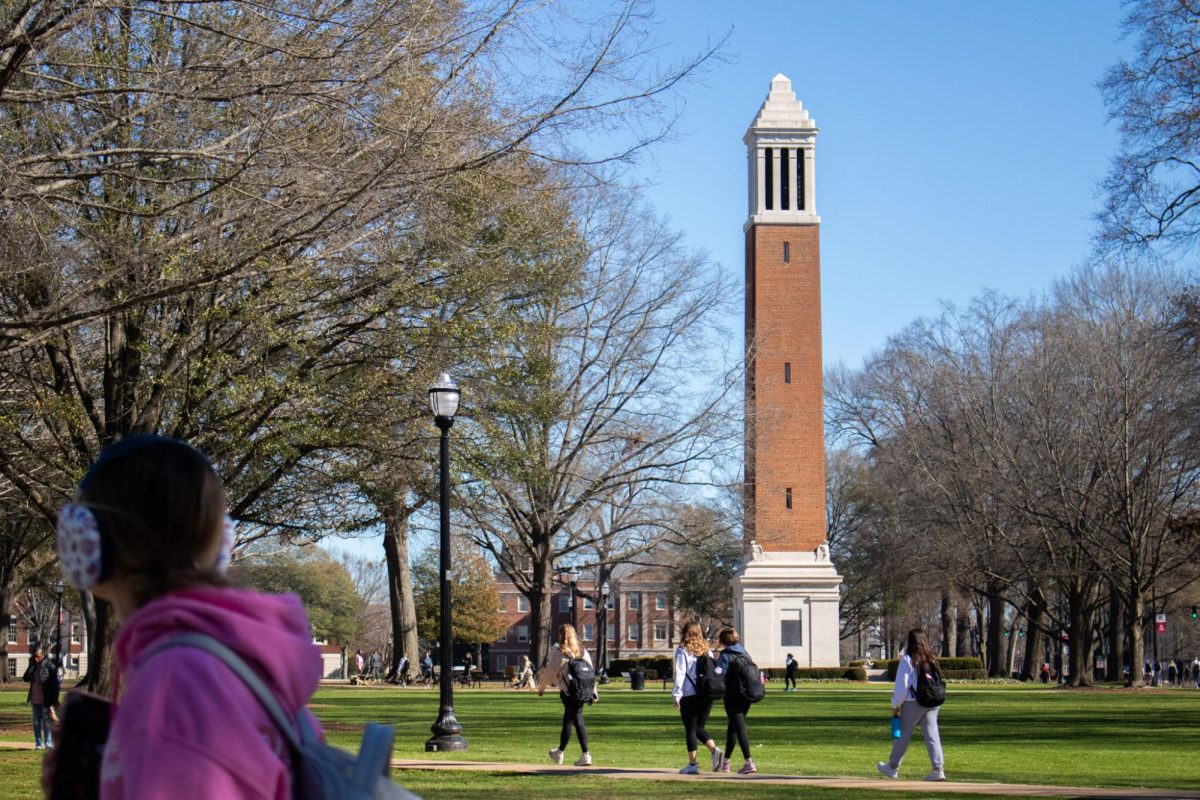Since returning to Tuscaloosa from spring break, students have found it plagued with high amounts of pollen, which have brought allergy season into full force.
While pollen’s arrival in the spring is always expected, areas of Alabama, including Tuscaloosa, have remained in the high percentile of pollen forecasts (levels between 9.7 and 12.0) consistently for the past several weeks, much higher than last year.
James Spann, head meteorologist for ABC 33/40, explained that a long winter contributed to this year’s high pollen counts.
“[In Alabama] we had an unusually cold and wet February and March. Because temperatures were well below average, and it rained frequently, the pollen we typically see in March was delayed until April. And, it all basically came out at once,” Spann said. “Generally, pollen levels seem to be running about 25 percent higher than average for this time of year.”
Kristen Bolden, a senior majoring in telecommunication and film, said she doesn’t believe the pollen levels are any higher this year than in the past.
“It may be a little more, but it doesn’t seem to be any more than in the past four years that I’ve been in Tuscaloosa,” Bolden said. “It hasn’t affected my allergies as much, which leads me to believe that it isn’t any more than usual. I can grab a tissue or two in the morning, then by 10:30 I am usually recovered and used to it.”
However, other students have not been as fortunate when it comes to this allergy season.
Lexy Kepano, a sophomore majoring in public relations, has learned that even visiting an allergist yearly isn’t enough to keep her allergies at bay.
“My allergies make going to class just miserable,” Kepano said. “My eyes water and turn red, my nose stays stuffy, and asthma makes it hard to breathe.The likelihood of me going to class decreases by about 40 percent during allergy season.”
Kepano has found that aside from taking the medication her allergist prescribes, taking showers often also helps dramatically because of all the pollen that can get stuck on your hair and clothes.
While unbearable to some for the moment, Spann said he believes we will soon have relief from the pollen.
“The soaking rains and strong winds of last week should greatly help the pollen situation, at least temporarily. We will then see pollen levels will go down in May on a consistent basis,” he said.








